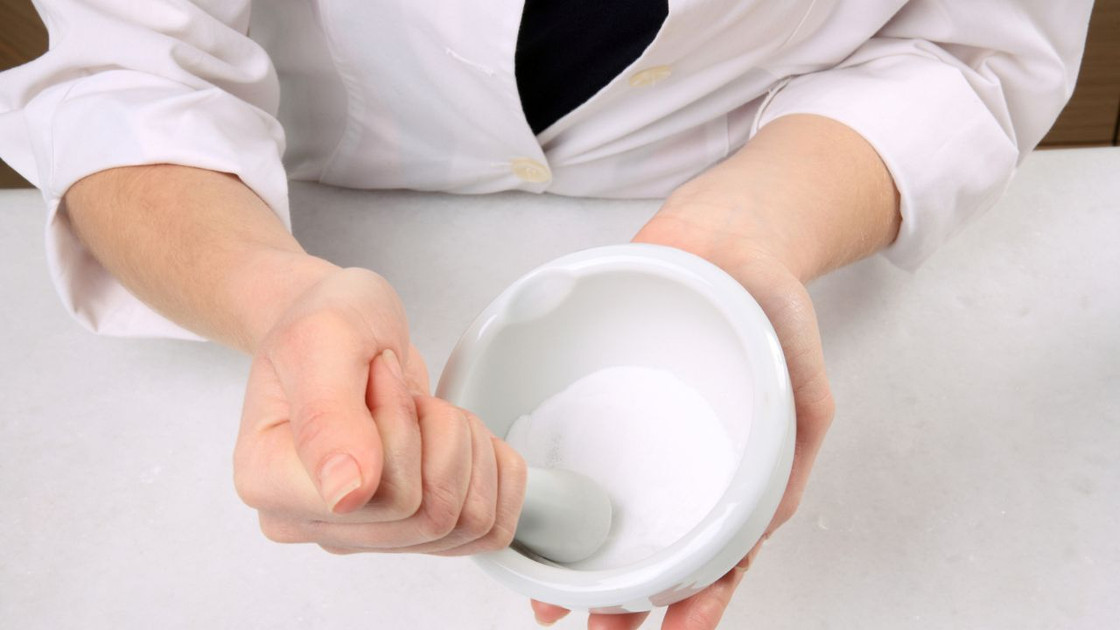Curious About Compounding? How a Customized Medication Benefits You.
Posted by DermaZinc® on Feb 5th 2023
Is your medicine cabinet full of ointments and gels for your red, itchy, rough skin? Have you attempted every brand-name product without satisfaction? Maybe you’ve even tried prescription-strength medications that only produced more side effects than relief. You may be a perfect candidate for compounding. Compounding considers your specific needs to formulate a medication and dosage specially prepared for you.
Patients who suffer from severe, chronic skin conditions like plaque psoriasis, eczema, dandruff, and more may benefit from compounding to experience maximum results. In this article, we will explore what compounding is (and isn’t), the benefits and risks, and how you can create your own compounded medication.
What is Compounding?
Drug compounding is mixing, combining, or altering ingredients to create a customized medication. Compounding still requires a healthcare provider’s prescription and is fulfilled by a licensed pharmacist or physician.
The Difference Between Manufactured and Compounded Drugs
Manufactured medications such as over-the-counter (OTC) and prescription medications are mass-produced, approved by the Food and Drug Administration (FDA), and sold to pharmacies, hospitals, or practitioners authorized to dispense medications. Compounding is a medication prepared according to a prescriber’s order for a specific patient.
Safety and Regulation of Compounded Medications
While manufactured drugs have to meet safety, efficacy, and quality standards set by the FDA, compounded medications do not. This is more of a technicality because the FDA still plays a part in overseeing the active ingredients and components used in compounded medications and conducts inspections of outsourcing facilities.
Instead, the United States Pharmacopeial (USP) Convention is an independent, nonprofit, scientific organization that sets standards for the quality of compounded medications. Compounding pharmacies are also regulated by each state’s Board of Pharmacy.
Federal law requires compounding to be done by a licensed pharmacist or physician in a state-licensed pharmacy or federal facility, as well as under the direct supervision of a licensed pharmacist in an outsourcing facility.
The Benefits of Compounding
The benefits of medication compounding are numerous. For skin conditions like eczema and psoriasis, compounding may be the most effective option. While OTC or prescription drugs may work for mild skin conditions, the dosage is one-size-fits-most, which may not be strong enough to treat severe cases. Also, specific ingredients in products found in any store or pharmacy may cause allergic reactions, irritating skin further. This is where compounding rises to the challenge.
Customization. Compounding can change the route of a drug, making pills easier to swallow if they are formulated into a liquid or disintegrating tablet, and making them taste better by adding flavoring for young kids. For dermatologic conditions, compounding can produce a better therapeutic effect by customizing the strength and taking into account your age, weight, allergies, and location of medication application. For example, topical treatments used on sensitive areas such as the face will require a less potent dose than on the hands or feet.
Supply shortages. Compounding is a way to overcome drug shortages. If a specific drug is out of stock or discontinued, pharmacists can compound a similar preparation to meet demands. This proved to be valuable during the pandemic. The FDA published temporary guidelines that allowed compounding manufacturers to produce necessary medications that were in short supply for hospitalized Covid-19 patients.
The Concerns of Compounding
One concern with medication compounding is finding a pharmacy that specializes in this service. You may be able to receive compounded medications at some retail pharmacies. Certain hospitals and doctor’s offices may also offer compounding. Searching for a local community pharmacy is the best option. For those who live in very rural areas, some pharmacies are licensed in multiple states and may be able to ship your medication to you. You can also contact DermaZinc®’s support team for up-to-date locations that offer compounding.
Another concern with compounding is the quality and potency of ingredients. Since pharmacists are calculating and formulating compounds using base ingredients, there can be miscalculations or issues with sterility. Fortunately, these instances are more of a concern with sterile and high-risk medications such as infusions or narcotics. Topical solutions do not require sterile compounding techniques so the risk of adverse effects is much less. Chapter 795, developed by the USP, sets specific standards for the safety and potency of nonsterile compounded medications.
How DermaZinc®’s Compounded Solutions Can Help You
For severe cases of chronic skin disorders, combining an OTC topical product with a prescription-strength corticosteroid may produce the most beneficial results.
The advantages of compounding include:
●Creating an individualized treatment for your specific needs
●Removing dyes or inactive ingredients that further irritate the skin
●Increasing or decreasing the potency to find the perfect dosage
●Possible cost savings by not using patented ingredients
Talk with your doctor or dermatologist to see if a compounded solution is right for you. DermaZinc® offers specific compounding instructions for your pharmacist to create a safe, maximum-strength topical treatment tailored for your needs.
Sources:
https://www.uspharmacist.com/article/pros-and-cons-of-pharmacy-compounding
https://www.usp.org/compounding-standards-overview
https://compoundingrxusa.com/blog/compounding-corticosteroids-psoriasis/
https://www.goodrx.com/healthcare-access/pharmacies/what-is-compounding-pharmacy


